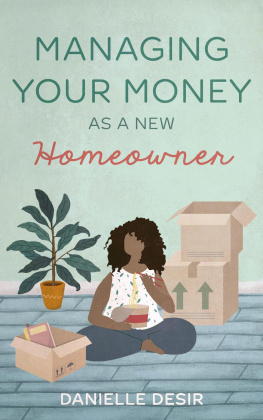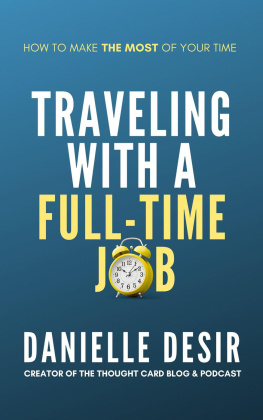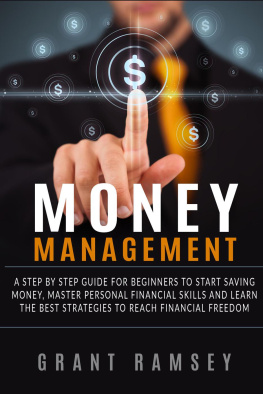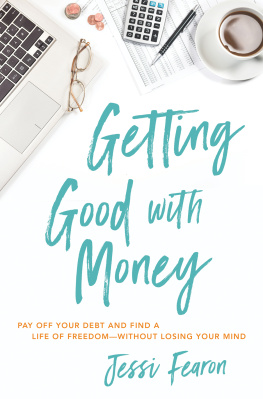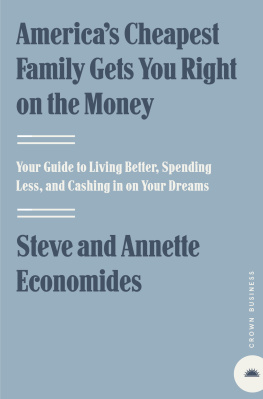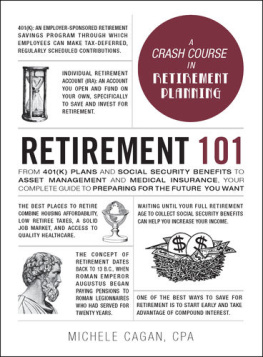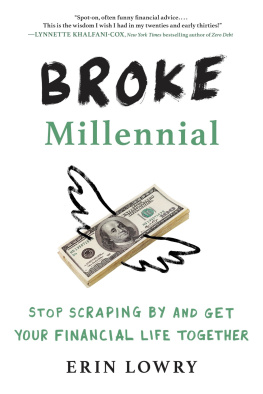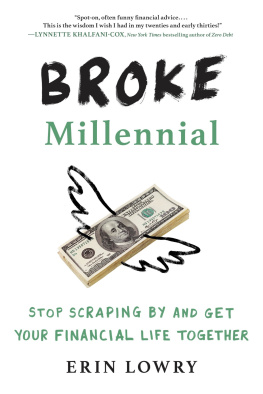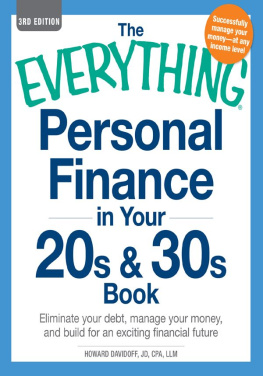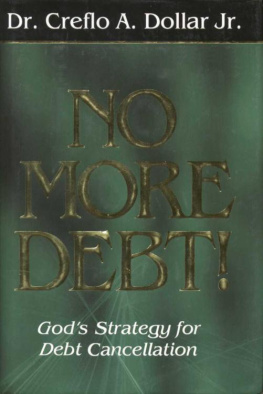Managing Your Money As A New Homeowner
Danielle Desir
Published by Danielle Desir, 2021.
While every precaution has been taken in the preparation of this book, the publisher assumes no responsibility for errors or omissions, or for damages resulting from the use of the information contained herein.
MANAGING YOUR MONEY AS A NEW HOMEOWNER
First edition. January 2, 2021.
Copyright 2021 Danielle Desir.
ISBN: 978-1393499305
Written by Danielle Desir.
10 9 8 7 6 5 4 3 2 1
Also by Danielle Desir
Affording Travel: Saving Strategies For Financially Savvy Travelers
Traveling With A Full-Time Job
Managing Your Money As A New Homeowner
Planning Local Trips During A Pandemic
Watch for more at Danielle Desirs site.
Contents
W hen purchasing a home , you have the support of a team: a realtor, a lawyer, a mortgage lender, inspectors, appraisers, and contractors. However, most homeowners are left to their own devices as soon as they sign on the dotted line. While many people talk about the home buying process, no one discloses what happens afterward: the financial worry and stress that often follows.
Although I was fortunate enough to have my mom by my side, an experienced homeowner and a real estate investor, neither of us could have predicted the financial mess I would find myself in shortly after moving. Putting little thought into what life would look like after purchasing a home meant I spent the first two years struggling, living paycheck to paycheck. If you are a new homeowner, maybe you can relate. While it is assumed you understand what you are getting yourself into, its inevitable to have blind spots.
As I write this, I have been a homeowner for over three years. The first two years were admittedly challenging. Lets be real. It was a shitshow. Some say the way to learn is through experience. Although I disagree, if thats the case, I have emerged wiser. But I wish someone would have taken the time to write a book on this topic or a detailed blog post. Call me crazy, but I would rather read about someone elses mistakes than make the same ones, especially if avoidable.
Despite all the blunders, I turned out fine. My finances are less turbulent, my spending is more consistent, and I even have money left over to save and invest every month. While I could not have written this book without the hardships, I recognize my life could have been less trying if I had known what I know now. Even though I have made mistakes, because of them, I picked up several money management skills.
This book will give you an overview of the simple ways to organize and optimize your finances as a homeowner. Specifically, a new homeowner with up to three years of experience. Use this guide to help you stay on top of your finances, protect, and maintain your most valuable asset. By sharing what I have learned and the financial strategies I have since implemented, I sincerely hope you will feel more prepared to assume all your new responsibilities.
In Chapters 2 and 3, I outline my homeownership story: the lessons I learned, and the most common mistakes new homeowners make due to not saving enough. This is important to highlight because the decisions you make as a first-time home buyer impact everything you do afterward. In Chapters 4-7, I detail my framework for managing your money as a new homeowner: the bank accounts you need and how to stash away cash for anticipated and unexpected expenses. This book is intentionally lean so you can apply what you learn as quickly as possible.
The more informed and aware you are, the better. If you have a good handle on your finances, it will positively impact all areas of your life - happiness, physical, emotional, and mental wellbeing. Overall, managing your money as a new homeowner means being in control and creating a financial plan. It also means having peace of mind, even when things get stressful.
Although buying a home is an enormous financial accomplishment, life doesnt stop there. Your hopes and dreams do not disappear as soon as you purchase a home. If youre like me, they get bigger.
Right after purchasing my home, I decided I wanted to retire early. To meet this audacious goal, getting rid of my mortgage as quickly as possible became paramount. No mortgage means less financial responsibility. This sparked me to get a better handle on my finances. I started budgeting again and scheduled weekly money dates: time dedicated to reviewing my finances, paying bills, and tracking the progress Ive made towards my financial goals. I also planned to get out of debt. Later I funneled that money to make extra mortgage payments. As a result, in three years, I paid off $22,000. While I have a long way to go, I am proud. Scraping up extra money to put towards my mortgage is not easy. Besides, I still want to travel, build wealth, dine out, and have nice things. Before we get into the how-to money management portion of this book, gather around the campfire. Lets start at the beginning.
Chapter 1: My Homeownership Story
I decided I wanted to purchase a home shortly after graduate school. With no job prospects, my mom welcomed me back with open arms. In the middle of trying to find a job, I received a letter in the mail. In six months, I had to make payments towards my $63,000 student loan balance.
Getting a job in New York City, two hours from home, meant I had to make a decision. I could either move to New York City and live closer to work. Or I could live at home, save money, and work on paying off my student loans. I chose the latter. However, since it was more expensive to rent than own in Connecticut, I set two financial goals. I would pay off my student loans and simultaneously save for a house. I decided I would put away $20,000 for the down payment. Looking back at this, I grossly underestimated how much I would need for new furniture and repairs.
I set a goal of saving $10,000 a year. In two years, I saved enough for the investment. It took another two years to finish paying off my student loans. By early 2017 I was touring homes with my realtor.
The house I fell in love with was in desperate need of repair. But with four bedrooms and two bathrooms, I could have an office, a guest bedroom as well as enough room to accommodate a growing family. Even though I was single (and hadnt met my husband yet), I did not want to invest in a starter home. I wanted to purchase a forever home and not have to go through the home buying process again. In 2020 I am saving for our first rental property. How quickly things change.
By May 2017, I signed a bunch of papers, handed over a check, and made it official. Filled with joy, I was a proud homeowner. But since my new home was uninhabitable, I did not move in right away.

